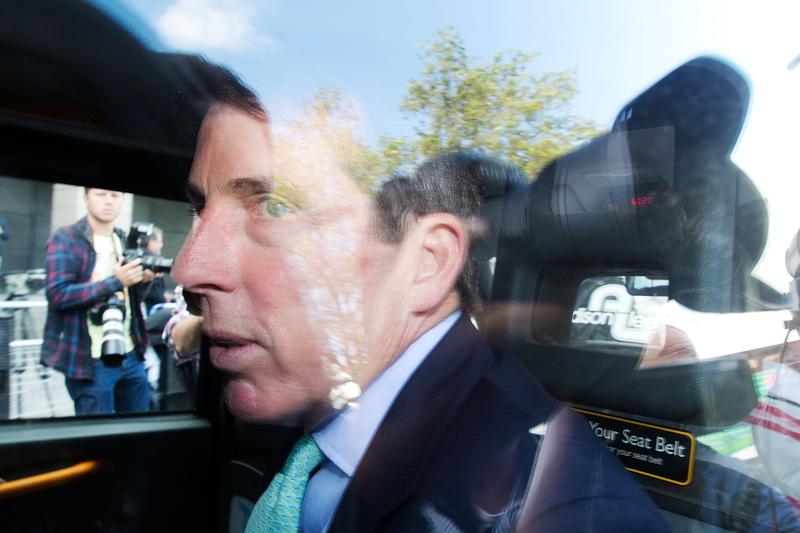
It's big news in Europe right now. Monday morning, before a British Parliamentary committee, a top official with the Bank of England is testifying.
But will it hop the Atlantic and take root here at home?
"It" is the news that Barclays – and perhaps other big banks as well – were playing fast and loose with the rules of the road that govern "LIBOR" or the London Inter-Bank Offered Rate, that affects everything from adjustable mortgage rates to car loans. Barclays has already paid some $450 million to settle charges, and the bank's chairman and CEO have walked the plank.
It's a huge, complicated story: was Barclays fudging the numbers to fatten its profits? To prevent widespread panic during the financial crisis of five years ago? Both – and that's why I'm skeptical that this story will really rivet the attention of the broader public. When it comes to financial scandal, it's much easier to stir interest – and, especially, indignation – if the story involves numbers small enough for us to grasp.
Consider the recent outrage over the antics of the General Services Administration, which "won" huge attention for a Las Vegas retreat it put on back in 2010. The total cost of the event: $823.000, which amounts to the cost of running the government for, oh, a gazillionth of a second. What stirred the outage (apart from the fact that a government agency went to Vegas, rather than, say, Muncie, Indiana)? The details: $400 for rented tuxedos! $3,749 for T-shirts! $95 a person for a reception and dinner! $57.72 per person for lunch!
With numbers like this, a story descends from the high altitudes, and comes down to earth. When I'm told that LIBOR affects as much as $800 trillion in transactions, I simply do not know how to grasp that kind of impact. I need a number that I've had some remote relationship to in my life. That's why when one-time Tyco International CEO Dennis Kozlowski involuntarily entered the public spotlight, the key fact involved not financial wrongdoing, but the fact that he had a $6,000 shower curtain for his 13-room Fifth Avenue duplex.
That's why the public outrage over Defense Department spending in the 1980s involved not tens of billions of dollars in weaponry that did not work, but $700 toilet seats.
So if the LIBOR story is going to become a major, headline-grabbing story on this side of the Atlantic, the financial journalists need to stop trying to figure out how much – if anything – these alleged interest-rate shenanigans cost investors or customers.
What they really need to find out is whether the Barclay's folks ordered in a $150 per person lunch – preferably with a nice Sancerre or Chardonnay – and wrote it off.
That's a story we can sink our teeth into.
